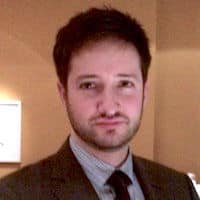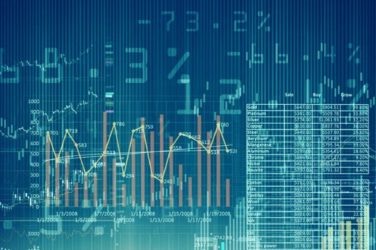Whereas Wall Street traders of years ago were likely to be collegial, liberal arts grads specializing in the soft skill of relationship building, aspiring traders in today’s complex electronic markets need quantitative and programming backgrounds.
Industry players have taken notice and are seizing the initiative to support the traders of tomorrow, while they’re still in the classroom today.
Wedbush Securities and Lime Brokerage, subsidiaries of Wedbush Inc., have steadily expanded their university outreach programs over the past two years. The firms have established relationships with leading universities and sponsored projects relating to topics ranging from fundamental equity research to machine learning and its applications in financial markets.
“We view our university relationships as beneficial to all parties,” said Joe Signorelli, managing director at Wedbush Securities and Lime Brokerage. “We get to know the students working on the projects and strengthen our recruiting, as well as establish contacts with professors whose expertise has significant impact on the financial industry and its evolution.”
Signorelli helped establish the educational programs along with Rich Jablonski, chief executive officer of Lime Brokerage and executive vice president of Wedbush Securities. Lime Strategy Studio, the end-to-end strategy development product that Signorelli manages, is a key component..
“Our goal is to provide students with real-world scenarios, hands-on advice from some of our employees, and access to professional applications that they may eventually use,” Signorelli said. “Students that participate in our projects, especially those that utilize Lime Strategy Studio, can reference their experience using professional tools in a professional setting when they are seeking employment.”

David Don, Wedbush/Lime
Christian Oesch, a Ph.D. student at the University of Basel in Switzerland, uses Lime Strategy Studio to cross-check his own research, which he said pertains to a high-frequency trading strategy based on liquidity asymmetries at the spread.
“I use Lime Strategy Studio to make sure that the results of my research are correct,” Oesch told Markets Media. “What I think is really great with Lime is that you get access to data that you normally don’t get access to. I had a data stream, but it didn’t capture the full U.S. market because it is very fragmented. I would have had to combine a lot of different data feeds, which is a lot of work. Lime’s solution provides integrated data.”
Lime provides a ready-made system that otherwise would need to be built by a team of quants and developers versed in C++, noted Costis Maglaras, professor of business and chair of the Decision, Risk and Operations division at Columbia University’s Graduate School of Business.
“It is not something you can replicate in the classroom in the span of two months or four months or a year,” Maglaras said. “The educational value of software products like this is essentially to allow these ideas to come to the classroom, because otherwise it’s too much of a heavy lift and you end up not doing it.”
Masters students in financial engineering at the University of Illinois College of Business have utilized Lime Strategy Studio to investigate arbitrage in the exchange-traded fund market, as well as after-hours trading. The program recently began its second Practicum sponsorship with Lime.
“It has been invaluable for students in terms of being able to investigate strategies in a real-world situation, using the back office, historical data and expertise of Wedbush,” said Morton Lane, director of the Illinois MSFE program. “There’s no way that a textbook or classroom could substitute for this in any adequate fashion.”
Other academics Lime and Wedbush work with include Cal Berkeley’s High Frequency Trading Lab led by Charles McCutchen, UCLA’s Masters of Financial Engineering program, Northwestern University professor Ernie Chan, and the University of Notre Dame’s Student International Business Council and professors Nitesh Chawla and Patrick Flynn.
“Successfully navigating today’s fragmented trading markets requires strong interdisciplinary skills in finance, data analysis, and software development,” said David Don, managing director of Wedbush Securities and co-founder of Lime Strategy Studio.
Don has lectured on quantitative finance and market microstructure at university programs, and he serves as a mentor on student projects. “Framing these academic products with real world institutional trading software helps prepare the students to navigate critical intricacies in modern market microstructure,” he said. “We find the implicit profit seeking element of the projects is a great way to keep the students engaged in the work.”
Feature image via /Dollar Photo Club





